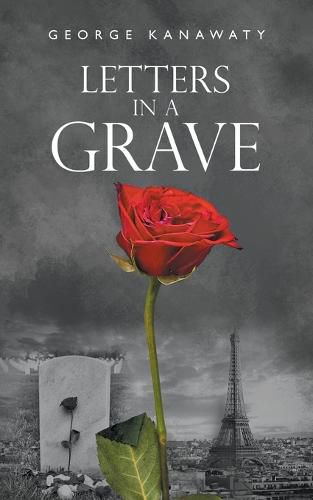Readings Newsletter
Become a Readings Member to make your shopping experience even easier.
Sign in or sign up for free!
You’re not far away from qualifying for FREE standard shipping within Australia
You’ve qualified for FREE standard shipping within Australia
The cart is loading…






This title is printed to order. This book may have been self-published. If so, we cannot guarantee the quality of the content. In the main most books will have gone through the editing process however some may not. We therefore suggest that you be aware of this before ordering this book. If in doubt check either the author or publisher’s details as we are unable to accept any returns unless they are faulty. Please contact us if you have any questions.
While the characters portrayed in this novel are fictious, the settings for the novel are based on historical events that took place during and shortly after the second world war. Hans, a German enlisted in the French Foreign Legion to fight the Nazi regime ends up as a German prisoner of war shipped to Canada. On release he meets Anne, a Canadian who helps him find a job in Canada. While both get married to others, they discover that they have far more in common than with their respective husbands and wives. Their relation develops into deep love, which they express through letters and through clandestine get togethers in Paris, where Hans works for an accounting multinational, as well as in Canada. By the time they are free, following the death of their respective partners they are already in their sixties, they decide it was too late to get married. Only after their death that their children discover the love letters and discover their love for each other. They decide to have Anne's cremated ashes buried in Hans's grave together with their love letters. Several non-fiction events are portrayed in this novel, which are little known to the general public, such as: Immigration to Canada in 1904; the French Foreign Legion; the dismantling of the German intellectual property after the war; the Student and workers uprising in France in 1968; the first US bombing of a Cambodian village shortly after the start of the Vietnam war and its aftermath.
$9.00 standard shipping within Australia
FREE standard shipping within Australia for orders over $100.00
Express & International shipping calculated at checkout
This title is printed to order. This book may have been self-published. If so, we cannot guarantee the quality of the content. In the main most books will have gone through the editing process however some may not. We therefore suggest that you be aware of this before ordering this book. If in doubt check either the author or publisher’s details as we are unable to accept any returns unless they are faulty. Please contact us if you have any questions.
While the characters portrayed in this novel are fictious, the settings for the novel are based on historical events that took place during and shortly after the second world war. Hans, a German enlisted in the French Foreign Legion to fight the Nazi regime ends up as a German prisoner of war shipped to Canada. On release he meets Anne, a Canadian who helps him find a job in Canada. While both get married to others, they discover that they have far more in common than with their respective husbands and wives. Their relation develops into deep love, which they express through letters and through clandestine get togethers in Paris, where Hans works for an accounting multinational, as well as in Canada. By the time they are free, following the death of their respective partners they are already in their sixties, they decide it was too late to get married. Only after their death that their children discover the love letters and discover their love for each other. They decide to have Anne's cremated ashes buried in Hans's grave together with their love letters. Several non-fiction events are portrayed in this novel, which are little known to the general public, such as: Immigration to Canada in 1904; the French Foreign Legion; the dismantling of the German intellectual property after the war; the Student and workers uprising in France in 1968; the first US bombing of a Cambodian village shortly after the start of the Vietnam war and its aftermath.